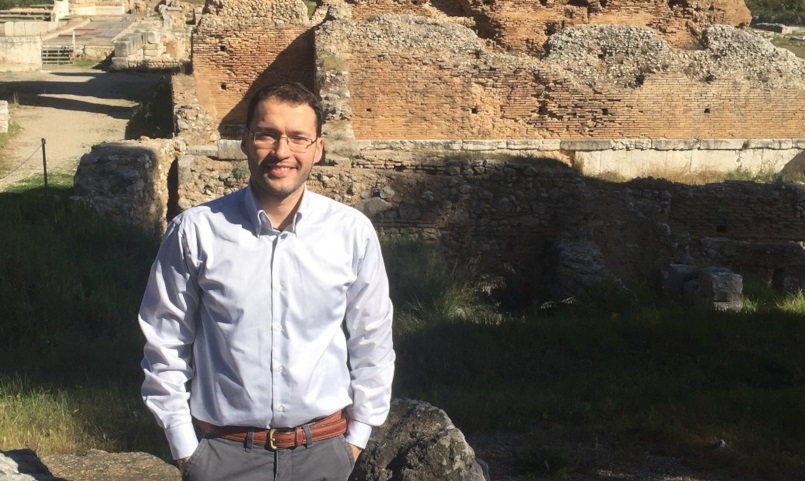
01 Aug From the Field: A Project Officer’s Observations
For this instalment of ‘From the Field’ we are hearing from Daniele, a Project Officer based in our South and East office. Daniele has an extensive education in archaeology, including a PhD, and comes to us from Sardinia, Italy. He was initially employed on the A14 Cambridge to Huntingdon Improvement Scheme before successfully applying for the position he now holds. He is one of many overseas EU staff that Headland has welcomed in the past few years so we thought we would ask him a bit more about his background, his experience working in the UK, and what drew him to our shores.
What first sparked your interest in archaeology?
I was born and grew up in a country where the past left remarkable signs; especially in the architecture, arts, language, traditions, and habits. As a child I was always inclined towards understanding and appreciating the meaning of these signs. In addition, I was lucky enough to travel quite extensively at young age, which gave me a chance to gain first-hand knowledge of historic places, cultural landscapes, and museums in other countries. It was a natural progression for me to become a professional in the area of historical disciplines.
Where did you study archaeology?
I first studied archaeology in Italy where I earned two Master’s Degrees and attended advanced training courses. While getting my PhD in the UK, I was also conducting research at the American School of Classical Studies and the British School at Athens.
What is your previous experience in archaeology before coming to the UK?
My archaeological experience is rather extensive. I have summarized the key points in the paragraphs below:
I have two Master’s Degree; one in Classics and Archaeology and the other in Geotechnologies for Archaeology, which were then followed followed by an Advanced Training Course in Digital Archaeology Survey Methods. All the above were conducted in Italy. In addition, I carried out research as a member of the American School of Classical Studies and the British School at Athens. This research period was crowned by my PhD from Durham University.
At Durham University I contributed to the teaching and tutoring of archaeology courses. I covered a research position in the department of Archaeology at the University of Siena for seven months, and worked for a short period at the Institute for Technologies Applied to Cultural Heritage (National Research Council).
My fieldwork experience includes Phoenician and Roman excavations and field-walks in Sardinia, Prehistoric excavations in Tuscany, archaeological surveys in Albania, extensive field-walks in Greece, and a decennial collaboration with the American School of Classical Studies at Athens working at the Athenian Agora Excavations. More recently, before becoming Headland core staff, I worked for over a year at the A14 mitigation scheme.
What motivated your decision to pursue a career in archaeology in the UK?
During my time at Durham University I began to think about the possibility of pursuing a professional career in the UK. It was during my experience at the A14 mitigation scheme that I understood that I could contribute meaningfully to UK archaeology.
What advice would you give to other European archaeologists looking to work in the UK?
UK archaeology has much to offer to newcomers. Whatever your previous archaeological experience and background, keep your mind open towards working in a new environment and weather conditions. You will learn a lot, and what you learn may open up unexpected career opportunities.
What was the biggest hurdle you had to overcome when you started work in the UK?
I am a very adaptable person and never feel like a foreigner anywhere. In my case I cannot really think of any specific hurdle but I do miss home sometimes as is normal for any expat.
What has been the best part of working in the UK?
The UK has a truly international work force. This internationalism is one of my favourite aspects of living and working here.
What are your future plans/future ambitions?
I want to further my career in archaeology by taking advantage of what developer-led archaeology has to offer.



